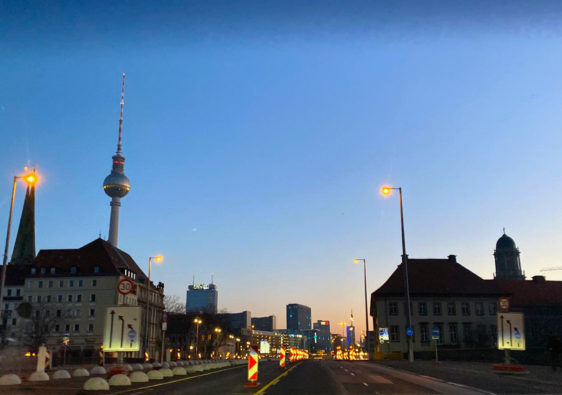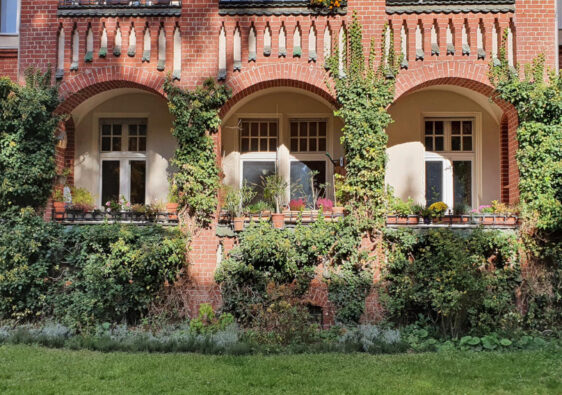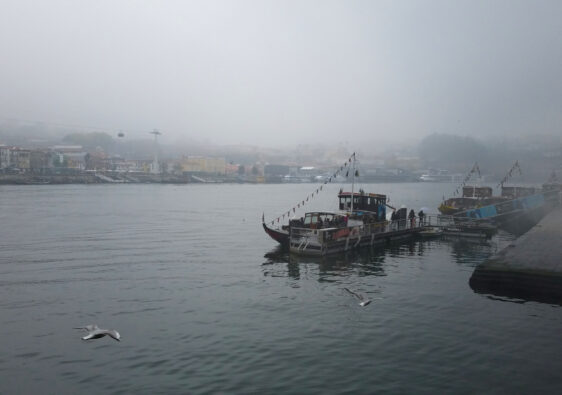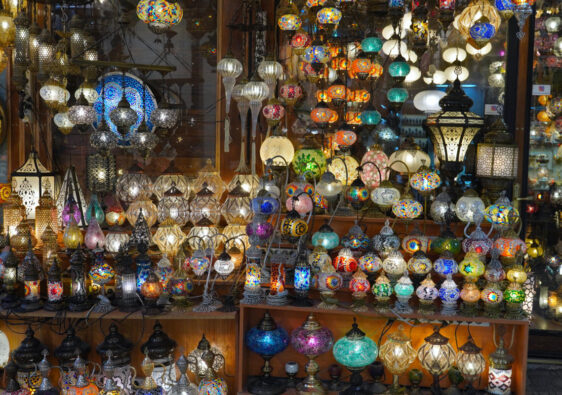Before traveling to Brazil for the first time, I felt like I was a part of the culture without ever having actually been there (thanks to an excellent intensive program at my university.)
The problem was, though, that I had never actually been there. And, if you talk to just about anyone from the United States, who’s never actually been there, they’ll tell you to go elsewhere because “it isn’t safe.” Somewhat heeding that advice, I spent an entire yea searching for travel options and programs that were considered “safe” and “secure” in my preferred destination of travel.
Now, after having been to Brazil myself, traveled around the North and East, and spent close to 2 years living in the famous city of Rio de Janeiro, I’m here to give you traveler insight on what things you truly need to know when traveling to Brazil for the first time and how to best prepare yourself for traveling there!
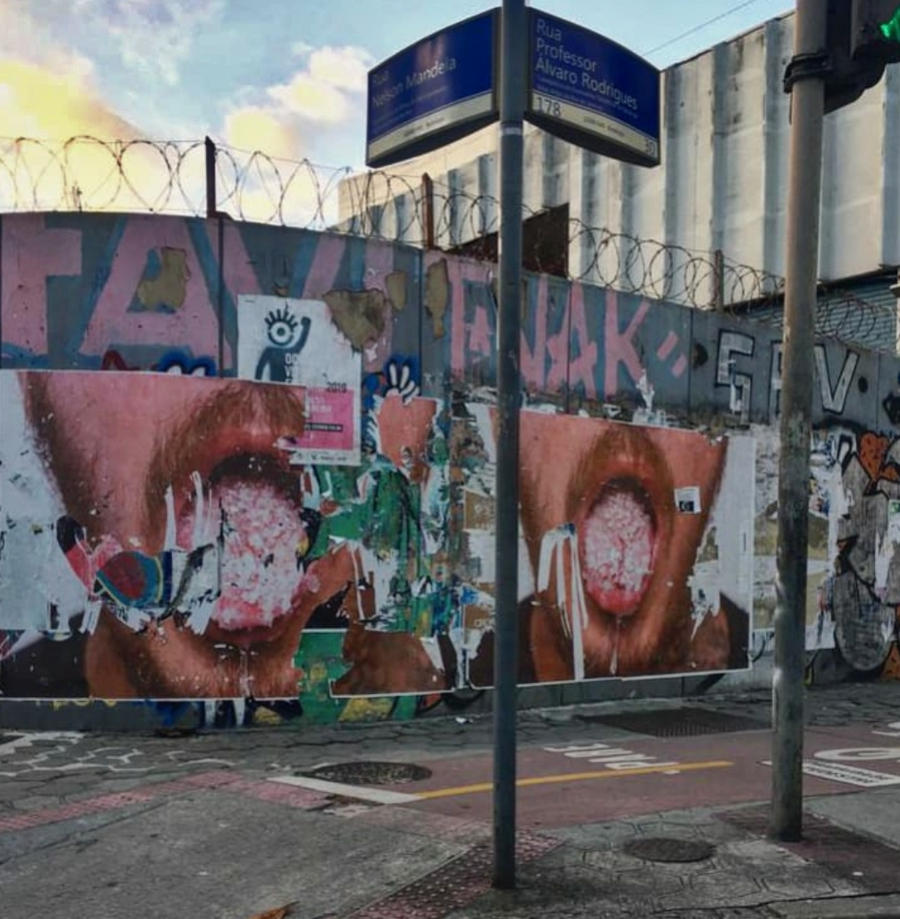
10 Things To Know Before Traveling To Brazil
1. It isn’t safe
It’s true what people say, Brazil isn’t safe, but you can still live/travel relatively safely if you take the right precautions.
The biggest crime you need to worry about here is theft. Mostly cellphones with lots of quick grab-and-gos. However, it’s not uncommon to hear similar stories with the perpetrator using a knife or gun (sometimes real, sometimes fake) to take cellphones as well as any other valuables you may be carrying with you.
My advice: Bring a backup cellphone with you that you don’t mind losing or handing over in times of conflict, leave your cellphone at your place of stay locked away tightly in a secure safe, or bring it with you and keep it well-hidden. Stick your reais in places that aren’t easily visible or accessible (like your sock or a fanny pack, for example), never wear fancy jewelry and always, always be aware of your surroundings.
If you need to use your cellphone and your traveling with someone, have them keep watch while you use it. Traveling alone? Step inside a store to place a phone call, order an uber, etc. And when it comes to photos, well, know that you’re taking a risk and be cautious.
I like to use the finger ring on the back of my cellphone and hook my finger through it each time I pull it out to use. That way, in case some tries a grab-and-go, they won’t be able to easily snatch my phone from my hands.
2. English won’t get you very far
Before traveling to Brazil, you should really come prepared with a few essential Portuguese words.
Since English is in such high demand there, you’re sure to come across people who speak it, especially in the younger generations, and most people know some English, but don’t be surprised if you have a hard time communicating here.
To keep you better prepared, here are a few of the most useful Brazilian Portuguese words and phrases you should know:

3. Highways are dangerous
I’d argue that Brazilian highways, outside of the main cities, are more dangerous than the robbers.
While there is definitely crime that occurs on the highways as well (like hijacking cars, for example), that’s not the type of danger, I’m referring to. The danger we’re speaking about here involves poor highway maintenance. To give you a better idea, the term “pothole” looks miniscule compared to the tire-sized craters you’ll have to weave around on Brazilian highways.
My advice: Try not to blink when you drive.
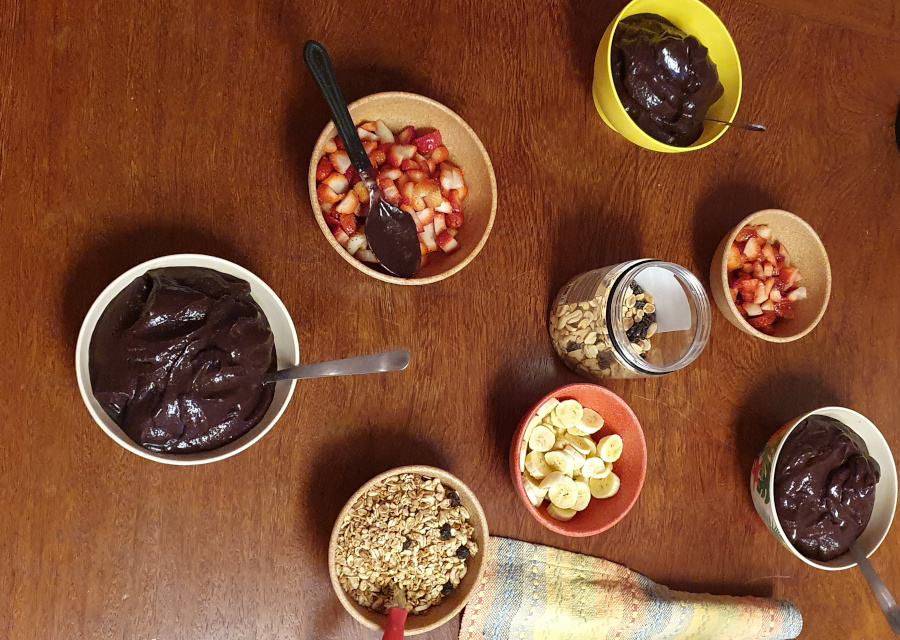
4. Açaí can and should be eaten at any and all times of the day
Açai is a round fruit that grows on a tree in South America. You’ll come to find it to be Brazil’s best street food, afternoon snack, and breakfast order.
To make the sweeter “iced” açai you find on just about every corner in southern Brazil, they smash the fruit with some water and use the pulp. The pulp is what you’ll be eating. Now, depending on the quality of açai, you may have very little water mixed in, half water-half açai, or mostly water and very little açai.
Most places sell the latter 2 and load it up with Guarana.
My advice: If you don’t fancy overly sweetened foods, don’t order just any açain when you’re traveling to Brazil for the first time. (Unless you’re really limited on time there – then get what you can!) Find a place that doesn’t add in their own concoction of guarana. That way you can sweeten it yourself. Rule of thumb: Avoid any açai joint that lets you add extravagant toppings (like oreo, chocolate sauce, etc.)
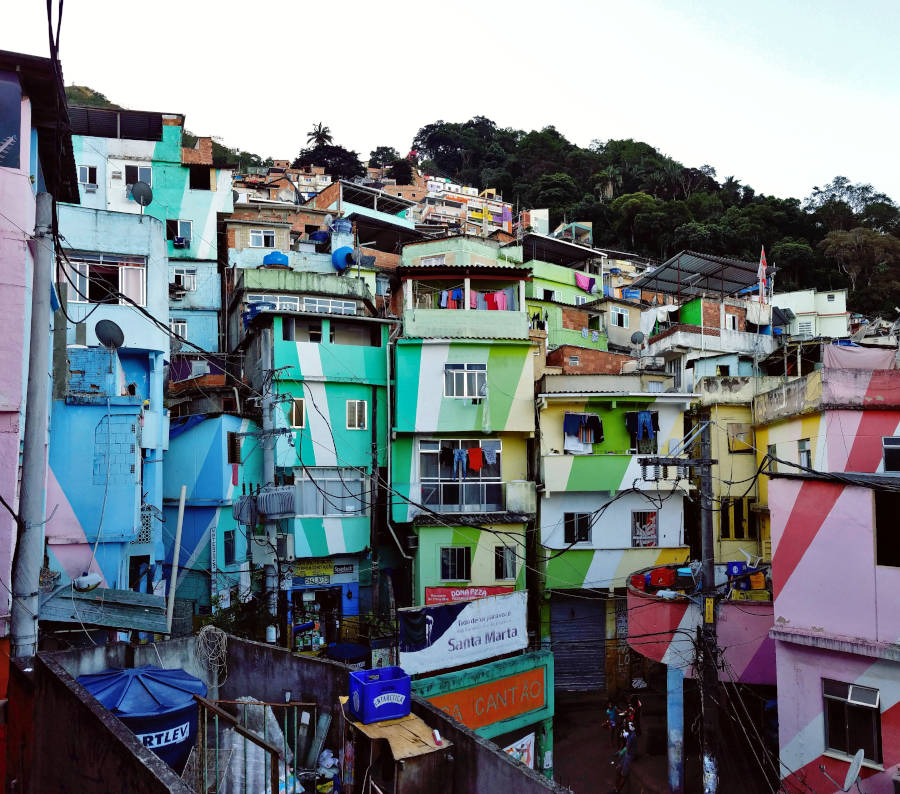
5. Not all favelas are dangerous, but the ones that are should be approached with extreme caution
During my time in Brazil, I lived in what was considered to be one of the more dangerous favela’s at the time. Even though the favela was small and the crime was concentrated at the top, further from where I was residing, people refused to enter. Uber driver’s refused to pick you up or drop you off the hill. More than scary, it was an inconvenience.
Living in this “danger zone,” we had to learn when you could climb further up the favela and when to avoid it. We knew that when the military arrived, be cautious, guns might be firing soon.
Despite the instilled fear that frequented the ignorant tourists on the hill, as long as you kept to yourself there wasn’t anything to be afraid of. Many times I’d take advantage of walking the hostel dog so that I could venture into parts of the neighborhood I was too nervous to on my own. Multiple times I ran into the gang members with their big guns patrolling or guarding certain areas. While their image greeted me with shock, their demeanor was kind and they allowed me to pass, no problem.
My advice: Learn what you can about an area before you go. Know where you can and cannot go, at what time of the day is best, etc. Stay off your phone. Don’t stare at gang members when you see them. Keep your head down and stay to yourself. If you’re approached by a member for any reason, be cooperative, stay calm.

6. Food isn’t exactly one of the highlight’s of Brazilian culture (save for açaí and coxinhas!)
Brazil’s cuisine is probably the more unfortunate of its cultural aspects, specifically if your a vegetarian.
Grilling culture is huge here, but as with almost every grill, comes meat. And unfortunately, most of southern Brazil’s dishes include some form of meat in it. Honestly, the lack of vegetarian cuisine is one of the main cultural aspects that took me by surprise considering the amount of fresh produce coming from there.
But don’t let this opinion deter you from trying Brazilian foods! (I have found a few favorite dishes that I still come back to time and time again.)
If you’d like to try one of my favorite Brazilian recipes, check out this authentic Moqueca recipe!
7. You don’t need to tip
Tipping is not part of Brazilian culture.
Unless service was outstanding or you feel the desire to, you don’t need to tack on any extra moolah to your bill. Especially since restaurants and bars already add an extra 10% serviço (added tip) to your tab. You aren’t obligated to pay it if you don’t want to.
But most people do.
My advice: Pay it.
8. People litter, everywhere
One of the most difficult things for me to see in Brazil was the amount of litter you find everywhere.
On the sandy beaches, within the rocks, on the mountainside… It doesn’t matter if you’re downtown city center or in the middle of nowhere, you’re bound to find trash somewhere. And you will, without a doubt, see many, many people throwing there trash on the ground around them.
Be it lack of education or some twisted thought that there will be someone to come around and pick up after them, littering is a problem and unfortunately, the beauty of Brazil is tainted by it.
My advice: Skip the arguing when you see someone doing it, and always leave a place better than when you arrived.
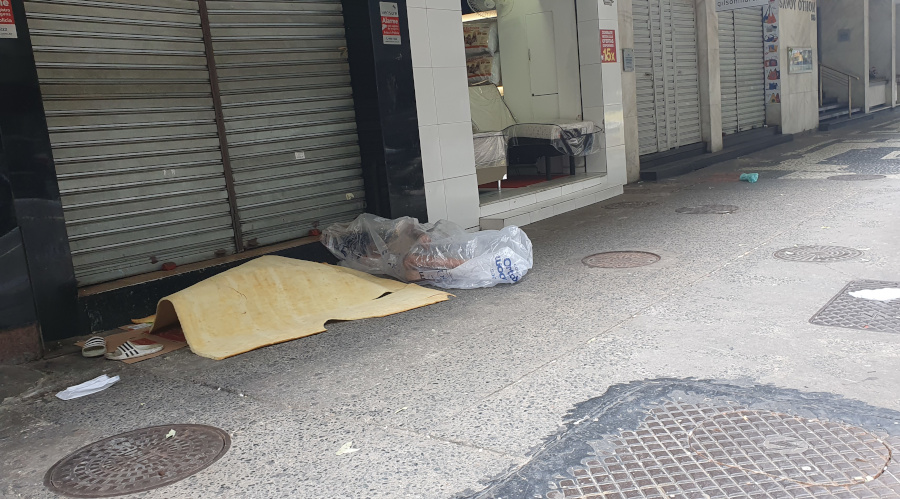
9. Homelessness is shocking
The other most difficult thing to see… is the homelessness.
Homelessness rules the city streets in Brazil. Especially in Rio, Sao Paulo, and Salvador. With the lack of pubic toilets and the fact that most public toilets charge for use, it’s no wonder places like Rio have a certain smell that’s always lingering in the city air.
Brazil is known for having extreme class differences, and some of the juxtapositions you’ll see will be heartbreaking.
10. Public toilets are scarce, but when you find one, make sure you have some change on you
As we already mentioned in the above, public toilets are few and far between in Brazil.
When you do find one, I can almost guarantee there’ll be someone there charging you to use it. That’s why it’s not uncommon to see a line up of men urinating alongside the same wall. (I literally witnessed this once – not even joking.)
The good thing is, everyone’s doing it.
My advice: When you gotta go, go.
11. Pizza is doesn’t have tomato sauce
Yup, that’s what you read there.
When you order pizza in Brazil, especially in Rio, expect your pizza to come without a saucey base. Why do they serve pizza this way, you ask? So they can use ketchup on top!
Even if you’re not a big ketchup eater, like me, give it a try, there’s something to it…
